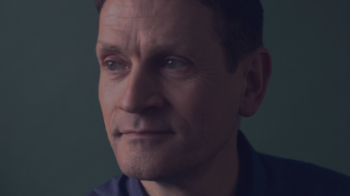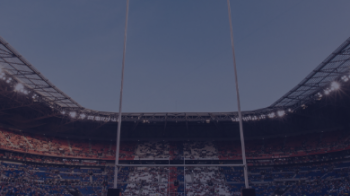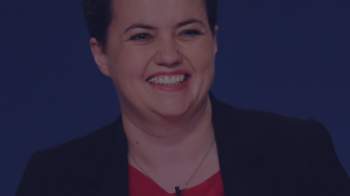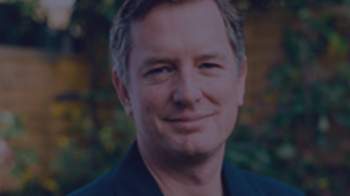Martin Siegert on climate change: “Advertising is really critical for our future”
Posted on Thursday 16 September 2021 | IAB UK
Speaking as part of our 2021 Leadership Series, Professor Martin Siegert FRSE highlighted the critical importance of lowering carbon emissions within the next 10 years and the role that the advertising industry can play in helping achieve net zero
“This morning is about leadership on a whole different scale”, our CMO James Chandler said as he introduced Martin Siegert - glaciologist, professor at Imperial College London and Co-Director of the Grantham Institute, which sits at the heart of Imperial’s work on climate change.
While we all probably claim to be familiar with the climate change emergency, Siegert’s talk was both eye-opening and stark. By putting our situation into a wider context of environmental change, he demonstrated how urgently we need to drive down carbon emissions globally and the responsibility advertisers have to help achieve this within the next decade.
What’s happening?
Discussing the level of carbon dioxide currently in our environment, Siegert said that “we haven’t seen this level for half a million years or so and it keeps going up”. In fact, in the space of 50 years, we have seen levels increase at the same rate as they did across 20,000 years when the world emerged from the last Ice Age. “There is no analogy for what we’re doing to our planet, with one exception - if an asteroid struck”, explained Siegert. What’s more, rates of carbon dioxide are only increasing, and we have “crossed the Rubicon” when it comes to sea levels, with Siegert saying that this is now largely being driven by a “runaway process” of melting ice sheets.
What’s next?
Heatwaves, flooding and cropland decline are unavoidable at this point, but we can take steps to minimise future damage. As Siegert put it:” We cannot stop this from getting worse - it will get worse than it is today - but we can avoid some serious problems for the planet if we reduce emissions right now.” As individuals and as a society, we face stark choices and need to act now or “our way of living on the planet will be turned on its head in 80 years”.
Sharing a range of possible scenarios, Siegert said that the UK Government would need to spend 1% of GDP annually (rising to 1.7% globally) to reach net zero within the next 15 years. Leave it 10 years and that price goes up to 2.2%. “If we take action now, it’s more affordable, it’s plausible and we can do it,” Siegert explained. However, “there is a rhetoric to deliver net-zero but the action just isn’t there” at the moment. With COP26 coming up in November, Siegert will view the summit as a success if there is international recognition that we need to make it to net zero by the middle of the century.
What can you do?
We can’t reverse climate change, but we can maintain our current global temperature and prevent further damage to the environment. “We absolutely need to deliver the best-case scenario, otherwise it will be very difficult to live on the planet in the way we want to”, Siegert warned. While he acknowledged that it can feel overwhelming to know what to do on an individual level, The Grantham Institute has developed 9 steps that people can take to help stop climate change. On their own, these steps “don’t solve the problem, but they get you to place where you are on a journey - are you contributing to this problem or are you helping to solve it?”
For an industry built on encouraging consumerism, advertising has a huge responsibility and “is really critical for our future”. Most of our expectations today are to live for a long time and achieve an aspirational lifestyle build on ‘more’, yet this simply isn’t sustainable: “We need to inhabit our planet responsibility”. Whether for oil companies or airlines, Siegert believes that ads should come with a labelling system to communicate the environmental considerations and costs.
Finally, scientists have a responsibility to translate the evidence they have in a more accessible way. “As this problem gets worse, it’s for scientists to get more activist about it”, Siegert said.
Looking to the future
“What gives you hope?” Chandler asked, with Siegert replying “always, always young people”. While he believes that many people in positions of power try to project their values onto younger generations when it comes to climate change, this is only holding progress back. “Young people really get this problem and they have a determination… This is a problem that their careers are going to have to solve. We’ve created it, they will have to solve it… let’s enable this younger generation to make the changes that are needed.”
Watch the full discussion with Martin Siergert below.
You can find The Grantham Institute’s ‘9 things you can do about climate change’ here.
Plus, find out more about the impacts of climate change here.
At IAB UK, we are a committed supporter of Ad Net Zero - the advertising industry’s initiative to achieve net zero by 2030, led by the Advertising Association. If you are an IAB UK member and would like to become a supporter of Ad Net Zero, please contact [email protected].
Related content
Bruce Daisley: Creating a sense of ‘togetherness’ is critical
Learn moreNigel Owens: The biggest challenge of my life was accepting myself
Learn moreRuth Davidson: “The most important resource in any organisation is people”
Learn moreLeadership Series: Listening is the key to greater connection
Learn more
Fast forward to 2030 with Futurescape
An in-depth exploration of the attitudes, innovations and media shifts that will shape the years ahead and redefine how we advertise by the turn of the decade



